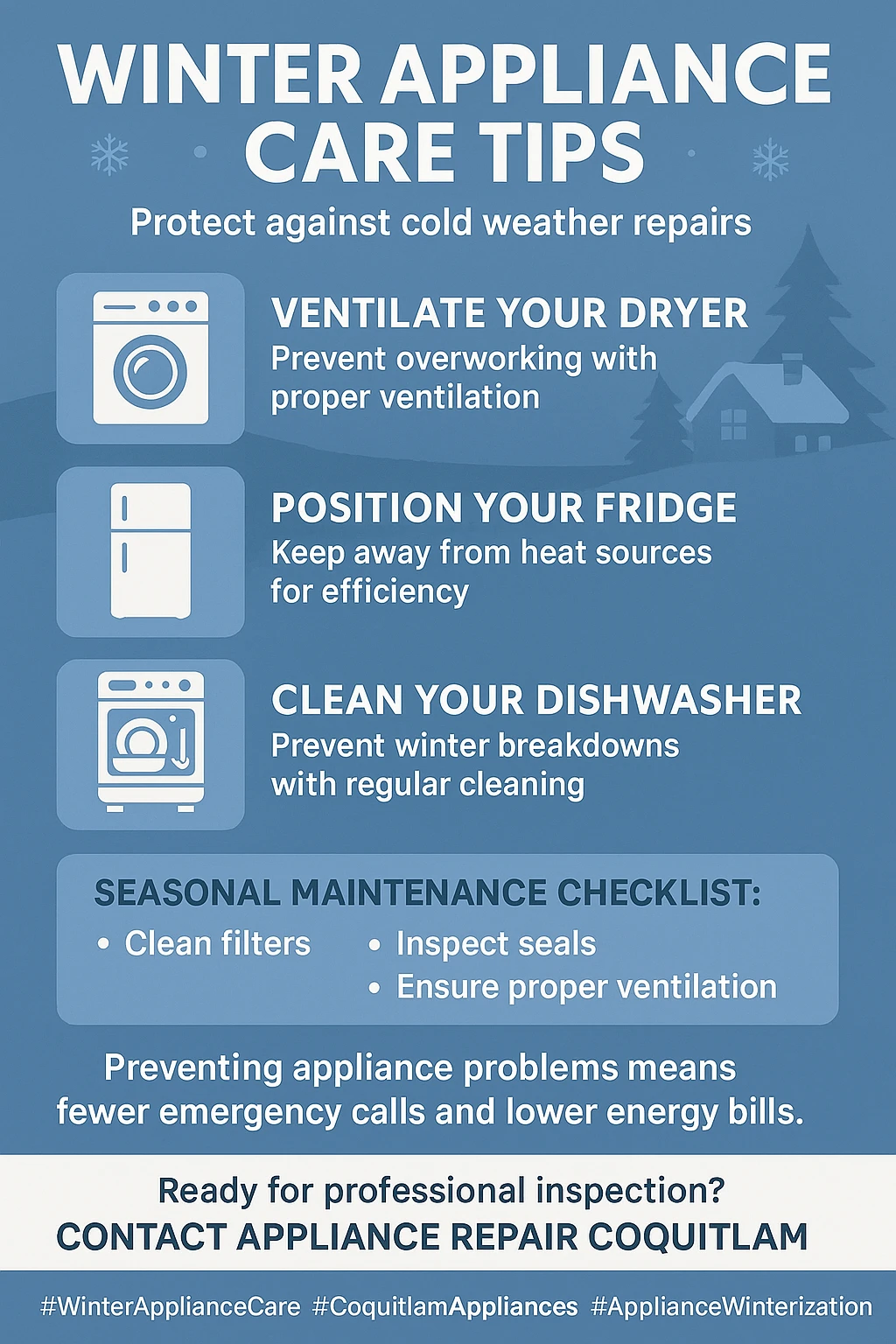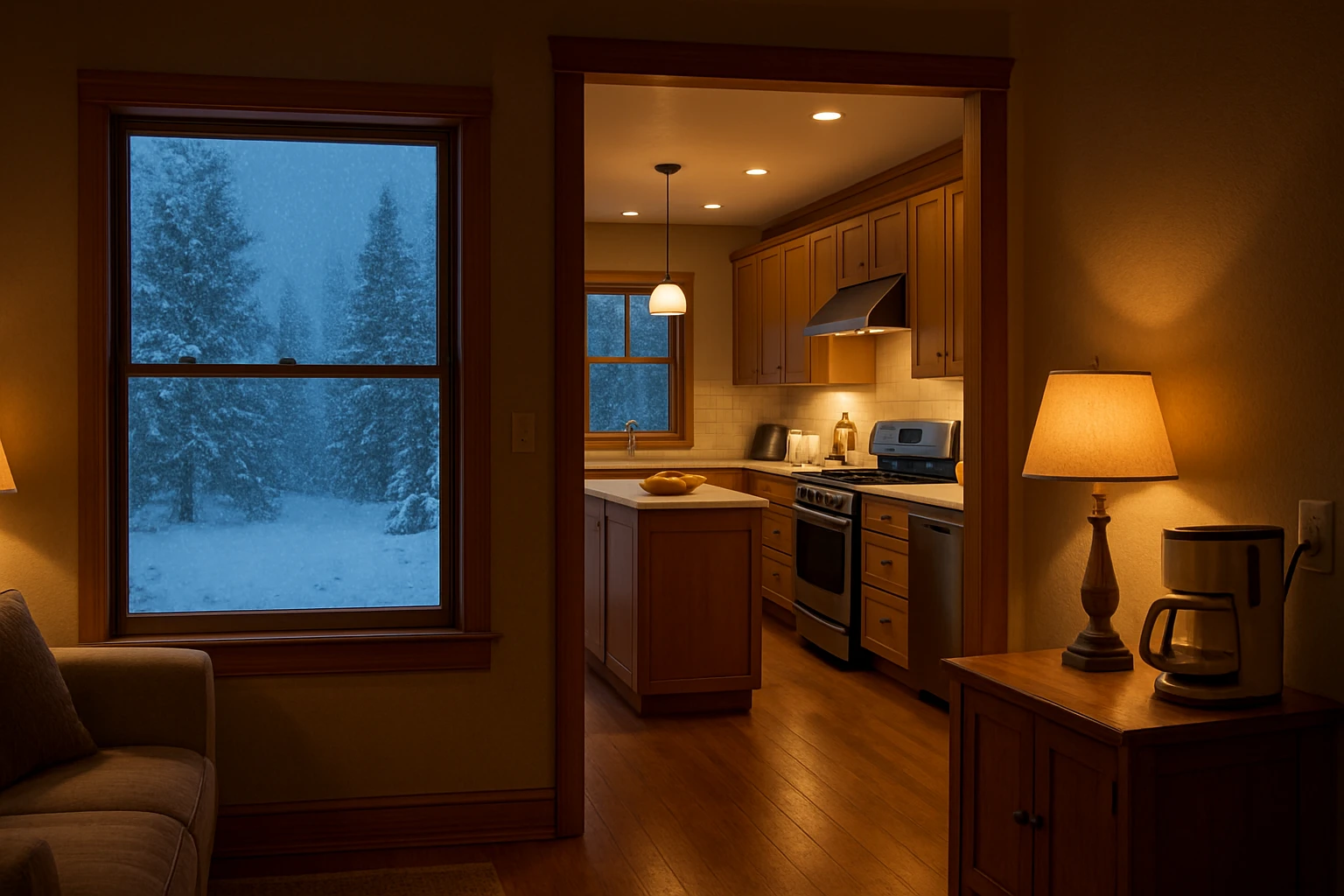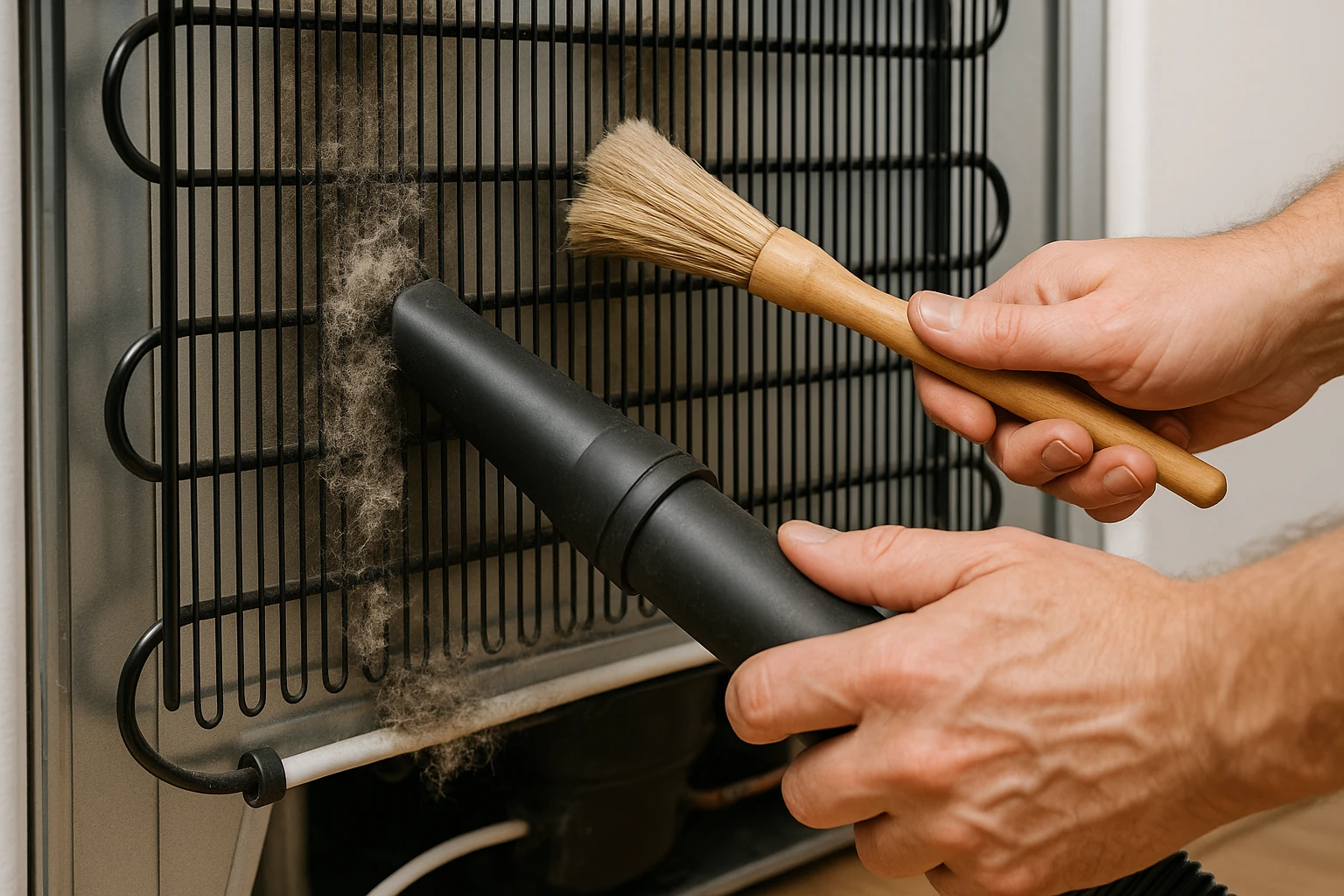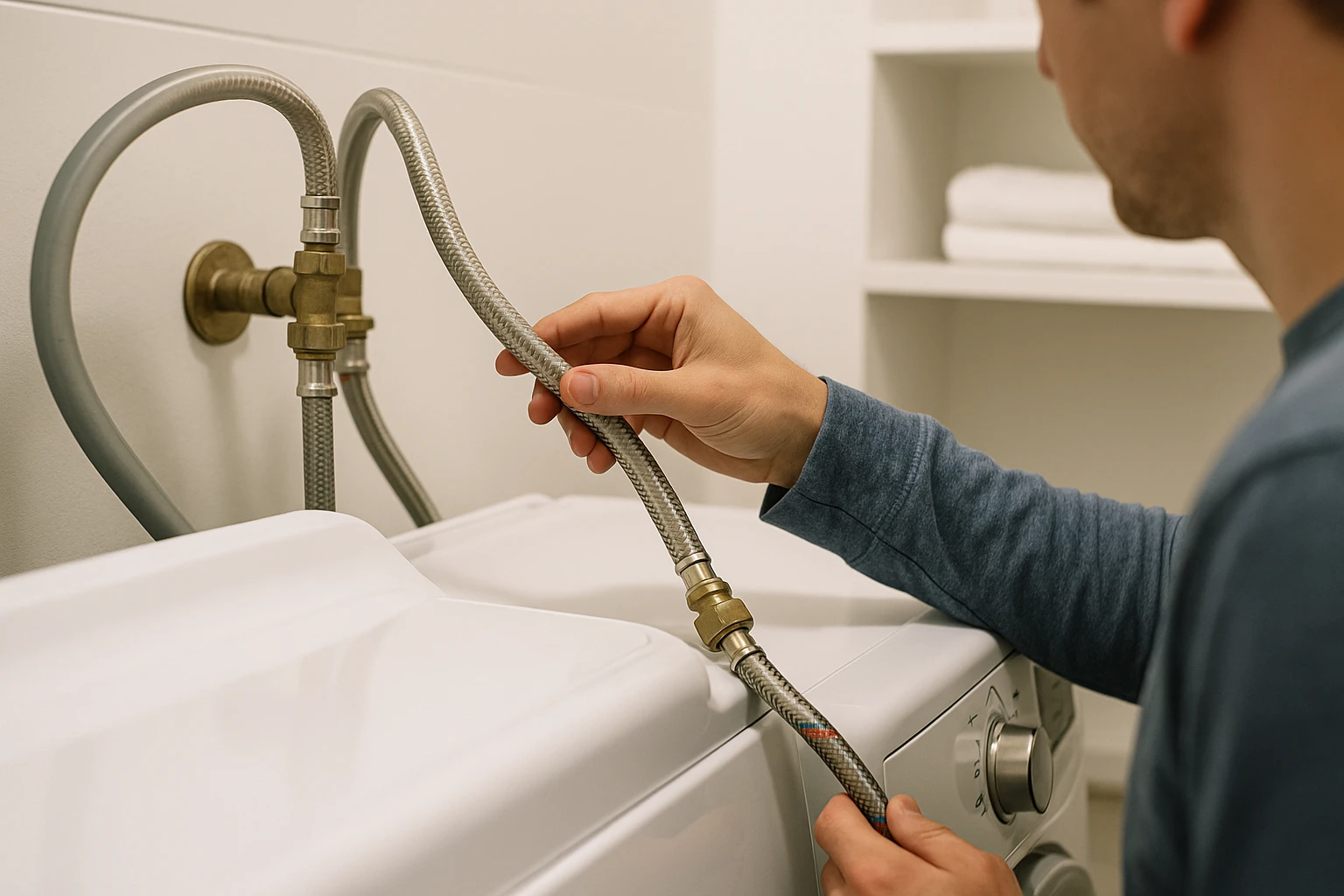Worried about your appliances surviving another brutal Canadian winter? We’ve got you covered with essential maintenance tips that’ll keep your household heroes running smoothly when the snow starts flying!
Picture this: it’s -20°C outside, you’re bundled up like a marshmallow, and suddenly your trusty dryer decides to give up the ghost right when you need warm clothes most. Been there, done that, and let me tell you – it’s not fun! Living in Coquitlam means dealing with some seriously cold temperatures, and our appliances feel every degree of that winter chill. That’s why I’ve become obsessed with winter appliance prep, and honestly, it’s saved my sanity (and my wallet) more times than I can count.
Winter maintenance isn’t just about keeping things running – it’s about preventing those middle-of-the-night emergencies that always seem to happen at the worst possible moment. From frozen pipes affecting your dishwasher to heating elements working overtime, our appliances face unique challenges during Canadian winters. The good news? With a little prep work and some insider knowledge, you can keep everything humming along beautifully all season long.
Key Outtakes:
- Winter weather significantly impacts appliance performance and lifespan in Canadian climates
- Simple preventive maintenance tasks can prevent costly emergency repairs during cold months
- Different appliances require specific winter preparation strategies for optimal performance
- Professional maintenance services offer specialized knowledge for extreme weather conditions
- Regular monitoring and quick action can prevent minor issues from becoming major problems

Understanding Winter’s Impact on Home Appliances

Let me paint you a picture of what really happens to your appliances when Old Man Winter comes knocking. During my first winter in my Coquitlam condo, I learned the hard way that appliances aren’t just machines – they’re living with us through every temperature swing, power fluctuation, and humidity change that Canadian winters throw at us. The cold doesn’t just make us shiver; it makes our appliances work harder, strain more, and sometimes fail completely.
The physics behind winter appliance stress is actually pretty fascinating. When temperatures drop, metal components contract, rubber seals become brittle, and moving parts require more energy to operate smoothly. Your refrigerator’s compressor, for instance, has to work overtime when there’s a 40-degree difference between your kitchen and the great outdoors. Meanwhile, your dryer’s heating elements are pulling extra power to warm up that freezing air coming through the vents.
But here’s what really gets me – it’s not just the cold that’s the problem. It’s the constant cycling between heated indoor spaces and frigid outdoor temperatures that creates the real havoc. This thermal shock causes expansion and contraction that can loosen connections, crack hoses, and wear out seals faster than you’d expect. I’ve seen perfectly good appliances fail simply because they couldn’t handle the constant temperature yo-yo effect of Canadian winters. Local repair professionals often see a spike in service calls during the coldest months for exactly this reason.
Essential Winter Maintenance for Kitchen Appliances

Your kitchen is basically appliance central, and these hardworking machines need some serious TLC before winter settles in. I’ve turned my annual winter prep into a fun weekend project, and trust me, your future self will thank you when everything’s running smoothly during those crazy cold snaps. Starting with your refrigerator – this baby is working overtime during winter months.
The first thing I do is check those door seals like my life depends on it. Cold air makes rubber seals contract and potentially crack, which means your fridge has to work harder to maintain temperature. I run my hand around the entire door seal feeling for any cold spots or visible damage. If you can slip a dollar bill through a closed door and pull it out easily, your seal needs attention.
Next up is the coil cleaning ritual. Those condenser coils at the back or bottom of your fridge collect dust and pet hair like nobody’s business, and when they’re dirty, your fridge works harder and uses more energy. I vacuum mine every few months, but definitely before winter hits. It’s amazing how much fluff comes off – sometimes I wonder if my cats are secretly shedding directly onto the coils!
Your dishwasher deserves some love too, especially since it’s dealing with colder water temperatures in winter. I always run a cleaning cycle with dishwasher cleaner, but here’s my secret weapon – I also check the water heater temperature. If it’s set below 120°F, your dishwasher won’t clean properly and might develop odors or buildup. The spray arms also need attention; I pop them out and rinse away any food particles that could cause clogs.
Don’t forget about your range and oven – these appliances actually work harder in winter because they’re fighting against colder ambient temperatures. I clean the oven thoroughly, check that the door seals properly, and make sure all burner drip pans are clean. For gas ranges, I also listen for any irregular sounds when lighting burners, which could indicate issues with the ignition system. The microwave might seem like a simple appliance, but winter static can actually affect its performance, so I wipe down the interior and exterior, check the door seal, and make sure the turntable rotates smoothly.
Protecting Your Laundry Equipment

Now let’s talk about the laundry room, because nothing ruins a winter day like discovering your washer has frozen or your dryer isn’t heating properly. These appliances face unique challenges during Canadian winters, and a little preparation goes a long way toward preventing disasters. Your washing machine is particularly vulnerable to cold weather, especially if it’s located in an unheated area like a garage or basement.
The first thing I do is check all the hoses – both hot and cold water supply lines and the drain hose. Cold weather makes rubber hoses brittle and prone to cracking, and a burst hose can cause thousands of dollars in water damage. I replace any hoses that look worn or feel stiff, and I always use high-quality braided stainless steel hoses that can handle temperature fluctuations better than basic rubber ones.
The drain system needs attention too. I pour hot water down the drain to clear any buildup and make sure water flows freely. If your drain is slow, winter’s reduced water flow can cause backups that damage your machine. I also check the lint trap in the drain (yes, washers have them too!) and clean it thoroughly.
For front-loading washers, that door seal is crucial. Cold air can cause the rubber to contract and potentially let water leak out during cycles. I clean the seal with a mixture of water and white vinegar, checking for any tears or buildup of soap scum. Leaving the door slightly open between loads helps prevent mold and keeps the seal flexible.
Your dryer faces its own winter challenges, particularly with venting. Cold outdoor air can cause condensation in the vent line, leading to lint buildup and potential fire hazards. I disconnect the dryer and thoroughly clean the entire vent line, removing any lint or debris. The outside vent cover should open and close freely – if it’s stuck, your dryer will work harder and take longer to dry clothes. Here’s something most people don’t think about: dryer sheets and fabric softeners can leave residue on the lint screen that reduces airflow. I wash my lint screen with hot water and dish soap every few months, scrubbing gently with an old toothbrush. You’d be surprised how much invisible buildup comes off! Professional technicians recommend this maintenance step as critical for winter performance.
Heating and Cooling System Maintenance
While we’re talking about appliances, let’s not forget about your heating system – because when it fails in January, you’ll wish you’d shown it some love in November. Even though it’s not technically a “kitchen appliance,” your heating system affects how hard all your other appliances work during those brutal Canadian winters.
The furnace filter is your first line of defense against winter problems. A dirty filter makes your furnace work harder, increases energy costs, and can cause the system to overheat and shut down. I check mine monthly during winter and replace it when it looks gray or clogged. Pro tip: buy a bunch of filters at once so you’re never caught without one during a cold snap.
If you have a heat pump, it faces unique challenges in Canadian winters. Ice buildup on the outdoor unit is normal, but excessive ice can damage the system. I keep the area around the outdoor unit clear of snow and debris, and I never try to chip ice off the coils – that’s a job for professionals. The system has a defrost cycle for a reason, and interfering with it can cause damage.
Your thermostat might seem simple, but it’s working overtime during winter to maintain comfortable temperatures. I replace the batteries annually and make sure it’s level and clean. If you have a programmable thermostat, winter is the perfect time to optimize your settings for energy efficiency while keeping your home comfortable.
Don’t overlook your hot water heater either – it’s working extra hard when incoming water temperatures drop significantly in winter. I check the temperature setting (120°F is ideal), inspect the area around the unit for any leaks, and make sure the venting is clear. If you have an older unit, winter is when you’ll discover if it’s struggling to keep up with demand. That’s when having a relationship with local repair services becomes invaluable.
Frequently Asked Questions
What temperature should I keep my home to protect appliances during winter?
Keeping your home between 18-21°C (64-70°F) is ideal for both comfort and appliance longevity. This temperature range prevents your appliances from working too hard while avoiding the condensation issues that can occur with extreme temperature swings. If you’re going away for more than a few days, never let your home drop below 15°C (59°F) – pipes can freeze and appliances can be damaged by extreme cold.
I learned this lesson the hard way during a weekend getaway when I thought I was being smart by lowering the thermostat to save energy. Came home to a kitchen disaster that could have been avoided with just a little more heat. The extra few dollars on your heating bill are nothing compared to emergency repair costs.
How often should I have my appliances professionally serviced during winter?
Annual professional maintenance is typically sufficient for most appliances, but winter conditions might require more frequent attention. I recommend having your heating system serviced before winter arrives, and scheduling appliance maintenance in late fall. If you notice any unusual sounds, smells, or performance issues during winter months, don’t wait – call a professional immediately.
Companies that specialize in winter appliance care understand the unique challenges our Canadian climate presents. They can spot potential problems before they become expensive emergencies, and they often offer maintenance programs that can catch issues early.
Are there specific signs that indicate my appliances need immediate winter attention?
Absolutely! Watch for these red flags: unusual noises, longer cycle times, higher energy bills, visible condensation or frost, inconsistent temperatures, or any burning smells. Your dryer taking longer to dry clothes or your dishwasher leaving spots on dishes are early warning signs that shouldn’t be ignored. During winter, these small issues can quickly become major problems due to the additional stress cold weather places on your appliances.
I always tell people to trust their instincts – if something seems off, it probably is. Don’t wait for complete failure during the coldest week of the year when repair services are swamped and parts might be harder to get.
What’s the most important winter maintenance task for preventing appliance failures?
If I had to pick just one task, it would be checking and cleaning all vents and filters. Whether it’s your dryer vent, furnace filter, or refrigerator coils, blocked airflow is the number one cause of winter appliance failures. Clean vents and filters allow your appliances to operate efficiently and prevent overheating, which is especially important when they’re already working harder due to cold weather conditions.
This simple maintenance step takes maybe an hour of your time but can save you hundreds or thousands in repair costs. Plus, clean systems work more efficiently, which means lower energy bills during those expensive winter months.
Wrapping Up
Taking care of your appliances during Canadian winters isn’t just about keeping them running – it’s about protecting your investment and ensuring your home stays comfortable when the weather gets brutal. From checking those refrigerator seals to cleaning dryer vents, these small maintenance tasks can prevent major headaches and expensive repairs down the road.
Remember, winter appliance care is really about being proactive rather than reactive. By spending a few hours each fall preparing your appliances for the cold months ahead, you’re setting yourself up for a worry-free winter. And when something does go wrong – because let’s face it, stuff happens – having established relationships with trusted local repair services means you won’t be left out in the cold.
The key is consistency and attention to detail. Your appliances work hard for you every day, and showing them a little extra love during the challenging winter months pays dividends in reliability, efficiency, and longevity. So grab that vacuum, check those seals, and give your hardworking appliances the winter prep they deserve – your future self will definitely thank you!


